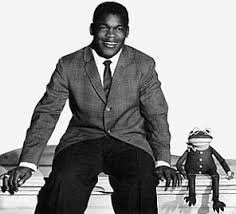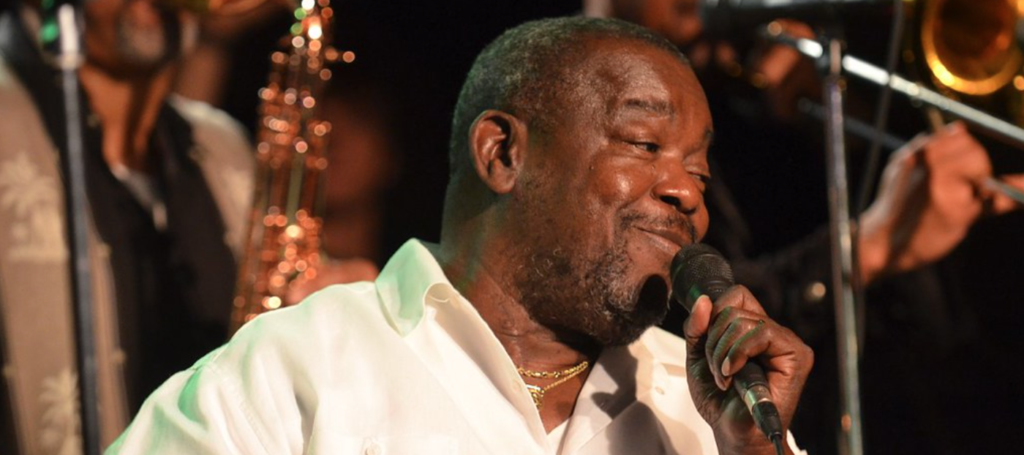
Clarence Frogman Henry was born Clarence Henry II on March 19, 1937 and was a pioneering American rhythm and blues (R&B) singer, pianist, and performer, whose unique vocal style and musical contributions left an indelible mark on the music scene of the 1950s and 1960s.
Best known for his quirky and memorable hits “Ain’t Got No Home” (1956) and “(I Don’t Know Why) But I Do” (1961), Henry was a beloved figure in the New Orleans music community and a significant voice in the wider rhythm and blues movement. His ability to blend elements of jazz, blues, and rock and roll with a playful approach to his music helped cement his place in American musical history.
Early Life and Musical Beginnings
Born in Algiers, New Orleans, Louisiana, on March 19, 1937, Clarence Henry grew up surrounded by the rich musical traditions of the region. New Orleans was, and still is, a city renowned for its jazz, blues, and R&B heritage, and Henry’s upbringing immersed him in this vibrant musical environment from a young age.
He started playing the piano as a child and quickly gravitated towards music, influenced by the local sounds he heard in his neighborhood and on the radio. Fats Domino, a fellow New Orleans native, was one of his biggest influences, and Henry admired Domino’s ability to blend R&B with catchy, popular rhythms that crossed racial and cultural lines.
As a teenager, Clarence Frogman Henry began performing in local clubs and venues, honing his craft and developing his stage presence. His early performances often featured a playful mix of styles, including piano-driven R&B tunes and covers of popular jazz songs, which became the foundation of his eclectic sound. His talent did not go unnoticed, and by the mid-1950s, Henry had gained enough recognition to begin recording his own music.
“Ain’t Got No Home” and the Rise of Frogman
In 1956, Clarence Frogman Henry recorded his breakout hit, “Ain’t Got No Home,” which became an instant sensation. The song, released by Chess Records, showcased Henry’s ability to switch between different vocal registers, mimicking the sounds of a frog and a girl, in addition to his natural voice. This unusual vocal performance gave the song its novelty appeal and earned him the nickname “Frogman,” which stuck with him throughout his career.
“Ain’t Got No Home” was an innovative song that combined humor, pathos, and catchy rhythm, making it stand out in the burgeoning rock and roll era. It resonated with audiences for its playful nature but also for the sense of loneliness and yearning it conveyed, tapping into a universal feeling that listeners could relate to. The song climbed the charts, reaching No. 3 on the U.S. R&B chart and crossing over to the pop charts as well. The success of “Ain’t Got No Home” catapulted Clarence Frogman Henry into national recognition and secured his place among the new wave of R&B performers who were shaping the sound of American music in the late 1950s.
Chess Records and Continued Success
Clarence Frogman Henry’s success with “Ain’t Got No Home” led to a recording contract with Chess Records, a powerhouse in the rhythm and blues world. Chess was home to some of the biggest names in R&B and blues, including Muddy Waters, Chuck Berry, and Bo Diddley, and Henry’s signing was a testament to his potential as a rising star.
In the years that followed, Henry continued to release a series of singles and toured extensively, sharing stages with some of the most prominent musicians of the time. His live performances were particularly popular in New Orleans and throughout the South, where his blend of R&B, blues, and rock and roll had widespread appeal. He became a regular performer at the Dew Drop Inn, a famous New Orleans club that hosted some of the biggest names in the music industry.
Despite the success of “Ain’t Got No Home,” Henry struggled to replicate its chart performance with subsequent singles during the late 1950s. However, his perseverance paid off when he returned to the top of the charts in 1961 with another hit, “(I Don’t Know Why) But I Do.” This song, a soulful ballad with a more traditional R&B sound, showcased Henry’s versatility as a performer.
Unlike the novelty-driven “Ain’t Got No Home,” “(I Don’t Know Why) But I Do” emphasized Henry’s vocal prowess and ability to convey deep emotion through his music. The song reached No. 4 on the Billboard Hot 100 and No. 3 on the R&B chart, giving Henry his second major hit and solidifying his reputation as a hitmaker.
Impact and Legacy
Clarence Frogman Henry’s music was part of the larger movement that helped to bring R&B into the mainstream during the 1950s and 1960s. His ability to blend humor, pathos, and strong musicality into his songs was a testament to his creativity and artistry. Although his career did not reach the same commercial heights as some of his contemporaries, Henry remained a beloved figure in the New Orleans music scene and continued to perform and record music throughout his life.

In the decades following his early chart successes, Henry toured widely and became a fixture on the oldies and nostalgia circuits, particularly in New Orleans, where he was revered as one of the city’s iconic musicians. He also toured internationally, bringing his distinctive New Orleans sound to audiences in Europe and beyond.
Henry’s influence can be seen in the way he bridged the gap between traditional rhythm and blues and the emerging sound of rock and roll. He was part of a generation of musicians who helped to define a genre that would go on to shape American popular music for decades. His playful and inventive approach to music, as demonstrated in “Ain’t Got No Home,” also prefigured the kind of genre-bending experimentation that would become more common in the later years of rock and pop.
Later Life and Recognition
In his later years, Clarence Frogman Henry was recognized for his contributions to American music. He continued to perform in New Orleans well into the 2000s, often appearing at events like the New Orleans Jazz and Heritage Festival, where his music was celebrated as part of the city’s cultural heritage. Henry’s enduring popularity in New Orleans was a testament to the deep connection he had with his hometown and its music-loving community.
Conclusion
Clarence Frogman Henry‘s career spanned decades, marked by both novelty and depth. From the whimsical croak of “Ain’t Got No Home” to the heartfelt emotion of “(I Don’t Know Why) But I Do,” Henry’s versatility as an artist was evident. Though he may not have achieved the enduring mainstream success of some of his peers, his music continues to be celebrated, especially in his hometown of New Orleans, where his legacy as a local legend and a pioneering figure in rhythm and blues endures.
Clarence Frogman Henry passed away on April 7, 2024, at the age of 87. His legacy, however, lives on in the music he created and in the influence he had on the generations of musicians who followed him. Songs like “Ain’t Got No Home” and “(I Don’t Know Why) But I Do” remain timeless classics, representing the joy, innovation, and heart of American rhythm and blues.
Check out Clarence Frogman Henry on Amazon.
If you found this interesting please share it with your friends and family, and why not check out some of our other articles on Musicians who died in 2024.
.

